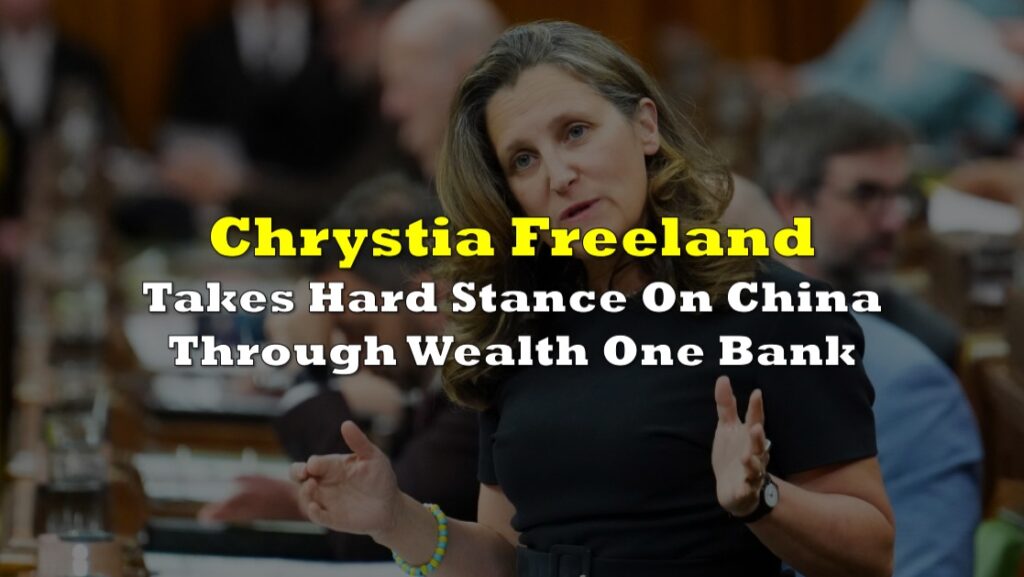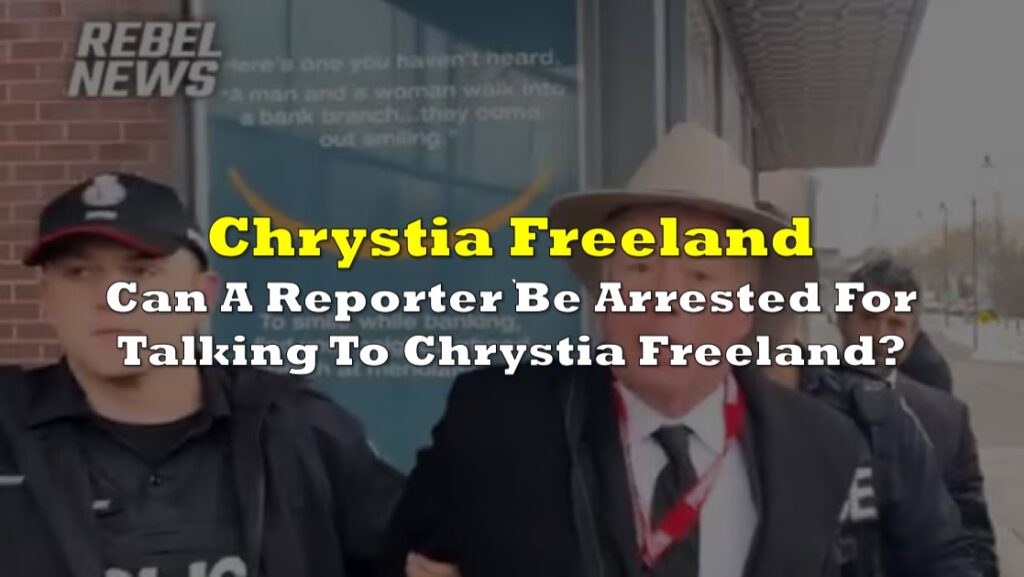Deputy Prime Minister Chrystia Freeland just had a lucrative epiphany: with much of Europe in a state of desperation ahead of the cold winter months following the Nord Stream pipeline explosions, it is time for Canada to invest in its natural resource sector and export that energy to its democratic allies!
In a surprising shift in policy, Freeland proposed that the government expedite Canada’s energy and mining projects in an effort to boost exports to its allies whist fast-tracking the domestic transition to net-zero emissions. While attending IMF and World Bank meetings in Washington last week, Freeland said the Liberals are prepared to lift some of the regulatory setbacks currently hindering natural resource development, as well as deploy political capital to ensure stronger economic security against energy rivals such as China and Russia.
Freeland likened the government’s about-face to European vaccine makers, many of whom manufactured Covid-19 vaccines for other non-European allies despite facing their own domestic crises. “Canada must— and will— show similar generosity in fast-tracking, for example, the energy and mining projects our allies need to heat their homes and to manufacture electric vehicles,” she said in a speech. “I cite these examples because, critically, friendshoring must be green. The curse of oil is real, and so is the dependence of many of the world’s democracies on the world’s petro-tyrants.”
The deputy prime minister’s proclamation was met with shock and praise among trade experts and energy and mining groups. “This could be really important,” said Canada West Foundation’s director of the trade and investment centre Carlo Dade, as cited by the Financial Times. “The question is, though, will it be long term?” Indeed, critics of the federal government’s strenuous regulatory process pointed out that Canada’s oil and gas, renewables, hydrogen, mining and emissions-reduction projects are lacking meaningful investment, ultimately preventing the country’s otherwise abundant resources from reaching international markets.
Indicative of this was German Chancellor Olaf Scholz’s recent visit to Canada, which he left empty-handed after failing to negotiate an agreement to ship LNG exports to Europe. Freeland, however, seemed to have shifted her stance since, this time insisting that the federal government is open to boosting investments in LNG projects, calling it “an important transition fuel” that can offset the amount of coal being burned during the current energy crisis. “We will always be looking at economically viable LNG projects,” she said following the IMF meeting.
Although the Liberals have made paltry improvements to the approval process via boosting consultations with Indigenous leaders via the Impact Assessment Act, investors still face uncertainty. “How many boards of directors are going to approve their CEO to go and spend billions of dollars on a project and a process and an application that is highly uncertain at the end of that?” said Business Council of Alberta president Adam Legge. “At the very end of it, after all the due diligence is done and checks have been done and studies have been done, it’s still a highly uncertain politicized decision.” Freeland failed to disclose what, exactly, such improvements to the regulatory process would look like.
Providing some light on the subject, natural resources minister Jonathan Wilkinson recently alluded that the federal government wants to coordinate both regulatory and permitting processes via so-called Regional Energy and Resource Tables, ultimately expediting the process at which projects are approved and built. The tables would be comprised of Indigenous, provincial, and federal officials that would look into, and accelerate mining and oil projects— namely in resource-rich provinces such as British Columbia and Alberta.
Information for this briefing was found via the Financial Post. The author has no securities or affiliations related to this organization. Not a recommendation to buy or sell. Always do additional research and consult a professional before purchasing a security. The author holds no licenses.









